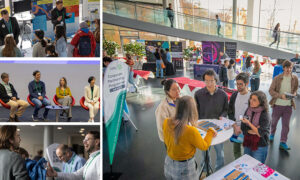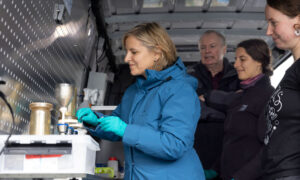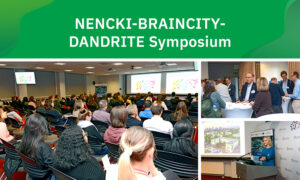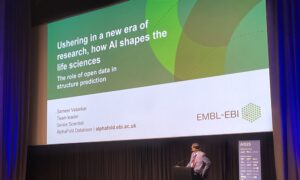
The value of open data for Latin American science
Scientists from the CABANA project explore how open data is benefiting global research efforts
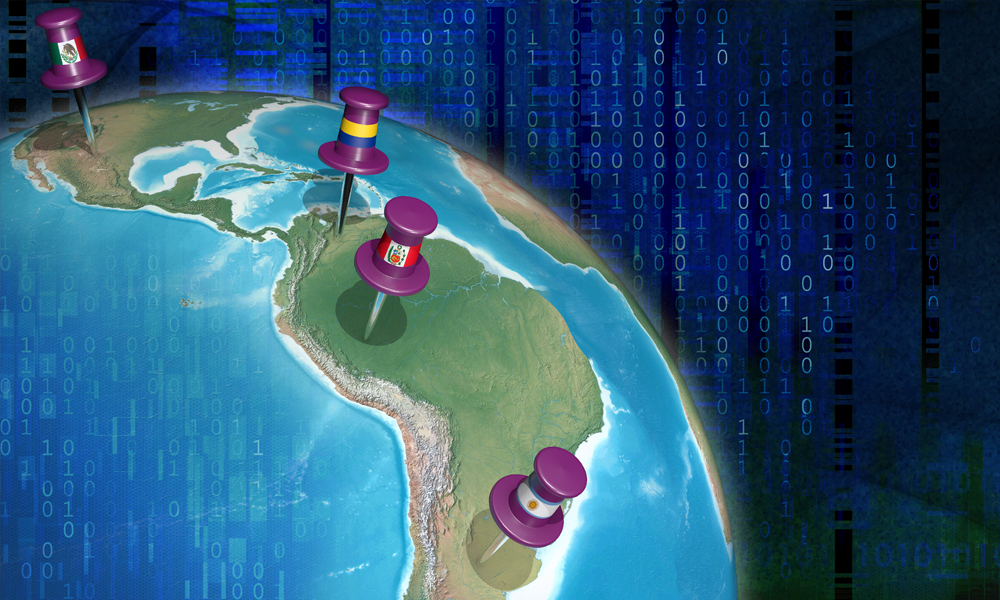
Open data sharing in the life sciences has been instrumental to the genomic revolution. Researchers around the world can now upload, access, and analyse a previously unimaginable amount of biological data from open access databases, tapping into the global bioinformatics ecosystem. Access to these data and online bioinformatics tools is accelerating the rate of research and discovery.
CABANA is a project run by an international consortium of ten organisations – nine in Latin America, plus EMBL-EBI in the UK. The aim is to strengthen bioinformatics capacity across Latin America. The project is funded by the UKRI Global Challenges Research Fund, which supports research to address challenges faced by developing countries. The CABANA project itself aims to tackle three global challenges: communicable disease, sustainable food production, and protection of biodiversity.
To get a better understanding of the increasing demand for bioinformatics and open access data in Latin American countries, we spoke to some of the co-investigators on the CABANA project. Here, they share the benefits of being part of CABANA, the challenges that economic restrictions in their countries present, and how open access data sharing is not only beneficial for them, but for the whole world, especially in light of the COVID-19 pandemic.
Open access accelerates science
Alfredo Herrera-Estrella – Group Leader at Cinvestav Unidad Mérida, Mexico

open access is the best way for science to progress
“The CABANA project has been a fantastic opportunity for us to connect with other Latin American countries, and the bioinformatics training has been great for allowing our PhD students to learn new skills. I think that the work to increase open data access, which is happening around the world, is the ideal situation. Of course, there is always a risk of people taking advantage of others’ efforts to produce data. I understand this, but I still think open access is the best way for science to progress.
“This is also something that people have learned from the COVID-19 pandemic. This pandemic has affected the whole world and we don’t know how long it’s going to be around. We have to be prepared for the future and I think, in this regard, sharing SARS-CoV-2 data is extremely important. This goes beyond the idea of moving science forward; it will benefit humanity. We have been doing some COVID-19 testing and sequencing viral genomes here in Mexico, and we will upload these data to ENA and GISAID to make them openly available to the international scientific community.”
Contributing to global research efforts
Josefina Campos – Coordinator of Genomics and Bioinformatic Platforms at Administración Nacional de Laboratorios e Institutos de Salud (INEI-ANLIS), Argentina
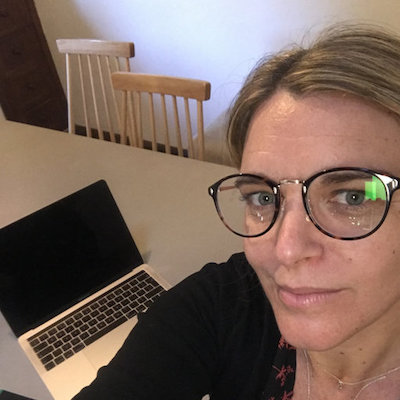
it’s better to at least contribute our data to global research efforts
“We joined the CABANA initiative just before we became part of a project called ARGENT, which, like CABANA, is funded by the UKRI Global Challenges Research Fund. As part of this work, we often generate sensitive human data. We try to share these data if we can, but they often need to be kept under strict access. There is also a different mindset about openly sharing data in our country: we are cautious about what we do or don’t share, e.g. data on foodborne pathogens, due to the economic impacts on our country. That aside, I still feel compelled to openly share our data when we can.
“What we’ve learned from the COVID-19 pandemic is that sharing data is important to all of us, and no one should be working alone on this. All the new COVID-19 information that researchers have generated has had an impact on the health of everyone in every country. When it comes to low- and middle-income countries such as those in Latin America, ultimately it’s more beneficial for us to share our SARS-CoV-2 data. Even if we can do some analysis locally and don’t have the resources to do further data analysis, then it’s better to at least contribute our data to global research efforts.”
Don’t take open data for granted
Jan Kreuze – Group Leader at The International Potato Center (CIP), Peru

We have secure access to so much data and we take it for granted, but we shouldn’t
“CABANA has allowed me to build a network with other researchers in Latin America, as well as providing an opportunity to learn new bioinformatics skills. We’ve been teaching courses as part of CABANA, and I’ve found that, as a trainer, you learn a lot when teaching because it makes you really think about what you’re doing.
“Our institute is completely dedicated to making our sequencing data findable, accessible, interoperable, and reusable (FAIR). There’s a lot of information within the data we generate that I will never have the time to follow up on, but there might be somebody else out there who will find it immensely valuable to their research. We have secure access to so much data and we take it for granted, but we shouldn’t. When data access is restricted, it inhibits research more than anything, because it becomes so much more complicated to acquire the data you need.”
Bioinformatics depends on open data
Alejandro Reyes Muñoz – Associate Professor at Universidad de los Andes, Colombia
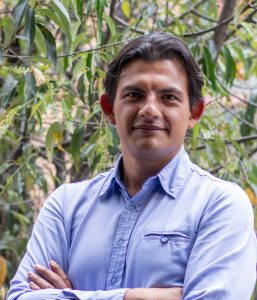
Without open access data, teaching bioinformatics would be extremely limited
“We had EMBL-EBI trainers come to our university to give bioinformatics workshops. I thought it would be great to make this type of training part of the university’s educational programme, so I got involved in CABANA to support the e-learning part of the project.
“Without open access data, teaching bioinformatics would be extremely limited. When data becomes open, suddenly bioinformatics can be a project by itself: you can use the tools and the data available to do your own meta-analysis. In Latin America, there is limited funding for science, so our research depends on being able to work using publicly available data. This gives us a strong advantage because it helps us compete with big organisations processing millions of samples. Also it’s possible to upload your data but keep it private until you’re ready to publish. This is great because it means you can still do online analysis with your data.”
Support COVID-19 data sharing
It’s more important than ever that researchers have open access to data. Please take a minute to read and sign our open letter in support of open access COVID-19 data sharing.
Find out more
Want to find out how EMBL-EBI handles sensitive human COVID-19 data? Find out about the Federated European Genome-phenome Archive (EGA) and how it helps to keep sensitive data secure.
This post was originally published on EMBL-EBI News
